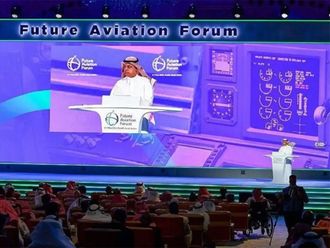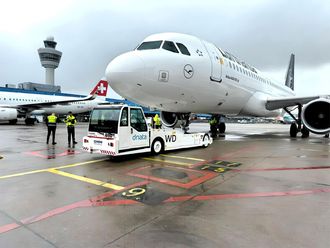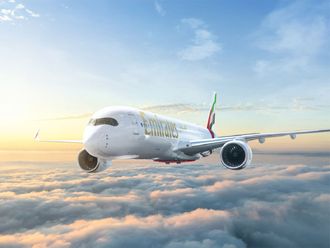Dubai: Emirates airline has not received “subsidies in any shape or form,” President Tim Clark said in Washington DC on Tuesday in response to allegations made by the US’ largest airlines.
US carriers Delta, United and American have alleged that Emirates, along with Etihad Airways and Qatar Airways, have received more than $40 billion (Dh146 billion) in state subsidies over the past decade. The US airlines now want the White House to take a look at the financials of the Gulf carriers and place open skies agreements with the UAE and Qatar in review.
“At no point did we have any form of subsidy given to us in kind or in cash,” Clark said during a conference call.
The Emirates President is in the US where he said he has met with a number of Federal officials over the allegations. He said the meetings were “very constructive” but declined to state details of the meetings.
The US airlines claim that the Gulf carriers are able to eat into their market because of the alleged subsidies. Clark said that of the 2.4 million passengers that Emirates flew to the US last year, 1.7 million came from points in Africa, India, Pakistan, Bangladesh and Iran that the US airlines do not fly to.
Etihad Airways President and Chief Executive, James Hogan, also addressed the allegations in Washington DC on Tuesday. He told an aviation event sponsored by the US Chamber of Commerce the airline receives “equity investments and shareholder loans,” according to a statement from Etihad.
The Gulf carriers, including Qatar Airways, have historically denied allegations that they are on the receiving end of state subsidies. The three airlines have hit back stating that it is their good customer service and better product offering that is growing market share.
“This is ultimately all about consumer choice. Customers choose to fly Etihad Airways because we offer a great product, with outstanding service, on the routes they want to fly, at prices that are competitive within those markets,” Hogan said.
Emirates currently flies to nine destinations in the US, while Etihad flies to six points. Clark said he did not expect any push back on Emirates’ ambitions to fly to 20 cities in the US despite the latest round of allegations.
Emirates has the ability “to connect the US with parts of the world that the US [carriers] didn’t serve and still doesn’t serve,” he added.
Clark gave reporters a background on how the airline that launched in 1985 has grown to be the world’s largest airline by passenger numbers. He said that apart from initial seed capital of $10 million and some funding “two or three years” later, the government of Dubai, which owns Emirates through the Investment Corporation of Dubai, stated that “there will be no support for operation.”












